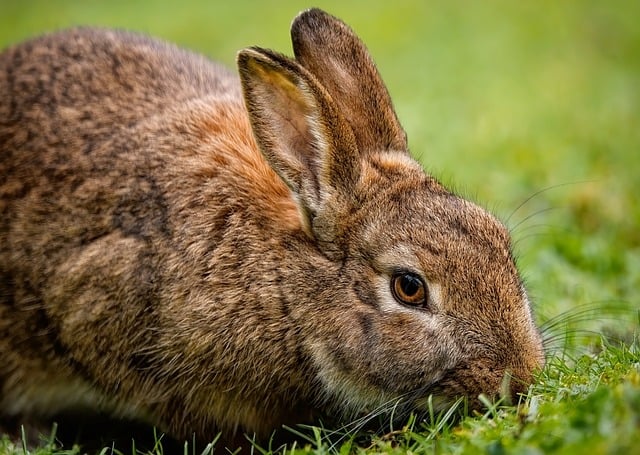Prohibited foods for rabbits: What to avoid feeding your pet bunny


Rabbits are adorable and gentle creatures that make wonderful pets. As responsible pet owners, it is important to provide them with a balanced and nutritious diet to ensure their health and well-being. While rabbits have a wide range of foods they can eat, there are certain foods that should be avoided as they can be harmful or even toxic to them. In this article, we will discuss the prohibited foods for rabbits and why you should avoid feeding them to your pet bunny.
1. High-sugar fruits and vegetables
While fruits and vegetables are generally considered healthy for rabbits, some varieties are high in sugar content and should be avoided. Fruits like bananas, grapes, and cherries are examples of high-sugar fruits that should be given sparingly or avoided altogether. These fruits can lead to digestive issues, obesity, and dental problems in rabbits. Similarly, vegetables like carrots and sweet potatoes should be given in moderation due to their high sugar content.
2. Processed foods and snacks
Processed foods and snacks that are meant for human consumption should never be given to rabbits. These foods often contain additives, preservatives, and high levels of salt, which can be harmful to rabbits. Avoid feeding your pet bunny items like chips, cookies, and crackers. Stick to natural and fresh foods that are safe for rabbits.
3. Dairy products
Rabbits are herbivores and their digestive systems are not designed to process dairy products. Feeding rabbits milk, cheese, or yogurt can lead to digestive upset, diarrhea, and other gastrointestinal issues. It is best to avoid giving any dairy products to your pet bunny and opt for rabbit-safe alternatives instead.
4. Grains and cereals
While grains and cereals may seem like a healthy addition to a rabbit's diet, they should be avoided. Rabbits have a delicate digestive system that is not designed to process grains and cereals efficiently. Feeding them foods like bread, pasta, or rice can lead to digestive issues and obesity. Stick to a diet that consists mainly of fresh hay, vegetables, and a small amount of pellets.
5. Beans and legumes
Beans and legumes, such as kidney beans, lentils, and chickpeas, should be avoided when it comes to feeding rabbits. These foods are high in protein and can cause digestive problems in rabbits. Additionally, some beans and legumes contain toxins that can be harmful to rabbits if ingested. It is best to stick to rabbit-safe vegetables and avoid feeding them beans and legumes.
6. Onions and garlic
Onions and garlic are known to be toxic to rabbits and should never be included in their diet. These foods can cause damage to a rabbit's red blood cells, leading to anemia and other serious health issues. It is important to ensure that your pet bunny does not have access to any foods that contain onions or garlic, including seasonings and sauces that may contain these ingredients.
7. Chocolate and caffeine
Chocolate and caffeine are both toxic to rabbits and should be kept far away from them. These substances can cause various health problems in rabbits, including heart issues, tremors, and even death. It is crucial to keep all chocolate products and caffeinated beverages out of reach of your pet bunny to ensure their safety.
8. Avocado
Avocado is another food that is toxic to rabbits and should be avoided at all costs. Avocado contains a substance called persin, which can be harmful to rabbits if ingested. It can cause digestive upset, respiratory distress, and even death. Make sure to keep avocados away from your pet bunny and never include them in their diet.
9. Nuts and seeds
Nuts and seeds should not be given to rabbits as they can cause digestive issues and pose a choking hazard. Rabbits have sensitive digestive systems that are not designed to process these foods properly. Avoid feeding your pet bunny nuts, seeds, or any foods that contain them.
10. Rhubarb
Rhubarb is a plant that is toxic to rabbits and should never be fed to them. All parts of the rhubarb plant, including the leaves and stalks, contain oxalic acid, which can be harmful to rabbits if ingested. It can cause digestive upset, kidney damage, and other serious health issues. Keep rhubarb away from your pet bunny and ensure they do not have access to it.
In conclusion, it is important to be aware of the prohibited foods for rabbits and avoid feeding them to your pet bunny. High-sugar fruits and vegetables, processed foods, dairy products, grains and cereals, beans and legumes, onions and garlic, chocolate and caffeine, avocado, nuts and seeds, and rhubarb should all be avoided. By providing your pet bunny with a balanced and rabbit-safe diet, you can ensure their health and happiness for years to come.


Related posts